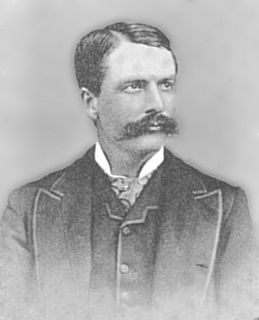A Quote by Robert Winston
It's extraordinary to think that if you walked into a room and said you had never heard of Hamlet, you would be regarded as a Philistine. But you could walk into the same room and say, 'I don't know what a proton is,' and people would just laugh and say, 'Why should you know?'
Related Quotes
Every time the tour guide told a story, he would build it up to the point where he'd say, "And there was Bloody Joe, and his young ghost son walked into the room." He would build it up, and then it was just "the ghost walked into the room." And he would say, "Let's move on," and that would be it. It's like, wait, what happened to the bloody ghost? That's it? We knew he was making some of it up.
I was shown into a room. A red room. Red wallpaper, red curtains, red carpet. They said it was a sitting-room, but I don’t know why they’d decided to confine its purpose just to sitting. Obviously, sitting was one of the things you could do in a room this size; but you could also stage operas, hold cycling races, and have an absolutely cracking game of frisbee, all at the same time, without having to move any of the furniture. It could rain in a room this big.
At the morgue, people were so desensitized that they would eat lunch in the glass walled room adjacent to the autopsy room. A viewing room. Because it had the best air conditioning in the building. So they would eat in there and maybe somebody would come in who had been found after being dead for three days and they would say: That is the exact purple I want for those drapes in the study. They didn't miss a beat. They could eat through anything.
It would be a wonderful experience to stand there in those enchanted surroundings and hear Shakespeare and Milton and Bunyan read from their noble works. And it might be that they would like to hear me read some of my things. No, it could never be; they would not care for me. They would not know me, they would not understand me, and they would say they had an engagement. But if I could only be there, and walk about and look, and listen, I should be satisfied and not make a noise. My life is fading to its close, and someday I shall know.
People who think they have no belief quite often say they want to pray but they do not know who or what they could be praying to. Aquinas would not say to such people, 'Ah, but you see, if you became a believer, a Christian, we would change all that. You would come to understand to whom you are praying.' Not at all. He would say to such people, 'If you became a Christian you would stop being surprised or ashamed of your condition. You would be happy with it. For faith would assure you that you could not know what God is until he reveals himself to us openly.'
Just supposing," he said, "just supposing" --he didn't know what was coming next, so he thought he'd just sit back and listen--"that there was some extraordinary way in which you were very important to me, and that, though you didn't know it, I was very important to you, but it all went for nothing because we only had five miles and I was a stupid idiot at knowing how to say something very important to someone I've only just met and not crash into lorries a the same time, what would you say..." He paused, helplessly, and looked at her. "I should do.
If you walk into a room, and there is no one that's not like you there, whether it's a woman or a person of color, anyone that's different from you, you should be able to say this is a problem. We need allies in that room to say that video, this room, this company, these ideas, this film, this whatever, this is not right - this is not good enough.
He was one of those people who made you feel like they either didn't know or didn't care that you were in the room and if they ever did acknowledge your existence it was bizarrely score one to you, and twenty years later they'd tell you they'd always had a crush on you but never had the courage to say anything and you'd tell them, What? I didn't even think you liked me? and they'd say, Are you crazy? I just never knew what to say!
I go into every meeting, into every room and for every speech understanding the standard deviation, the Bell Curve. I know there are about 10-15 percent of people in the room, who say, "I've been trying to say this for years. Finally. I agree. Yes, yes, yes." I know there are about 15 percent of the people in the room who think I'm an idiot, who think I don't know what I'm talking about, who think I'm naive or I have oversimplified everything. The majority who are open to the ideal.
At the beginning of the Larry Sanders show, you know, we were grateful to get guests. At the end, it was as if we actually were The Tonight Show. People would come on, and it had the same sort of imprimatur as if we were on the air. I've been on a lot of talk shows during that time and since then, and people would come up in the dressing room or in the corridors and say, "You guys got it exactly right." Or they would say, "We have Larry Sanders moments every day."
In a world of fixed future, life is an infinite corridor of rooms, one room lit at each moment, the next room dark but prepared. We walk from room to room, look into the room that is lit, the present moment, then walk on. We do not know the rooms ahead, but we know we cannot change them. We are spectators of our lives.




































